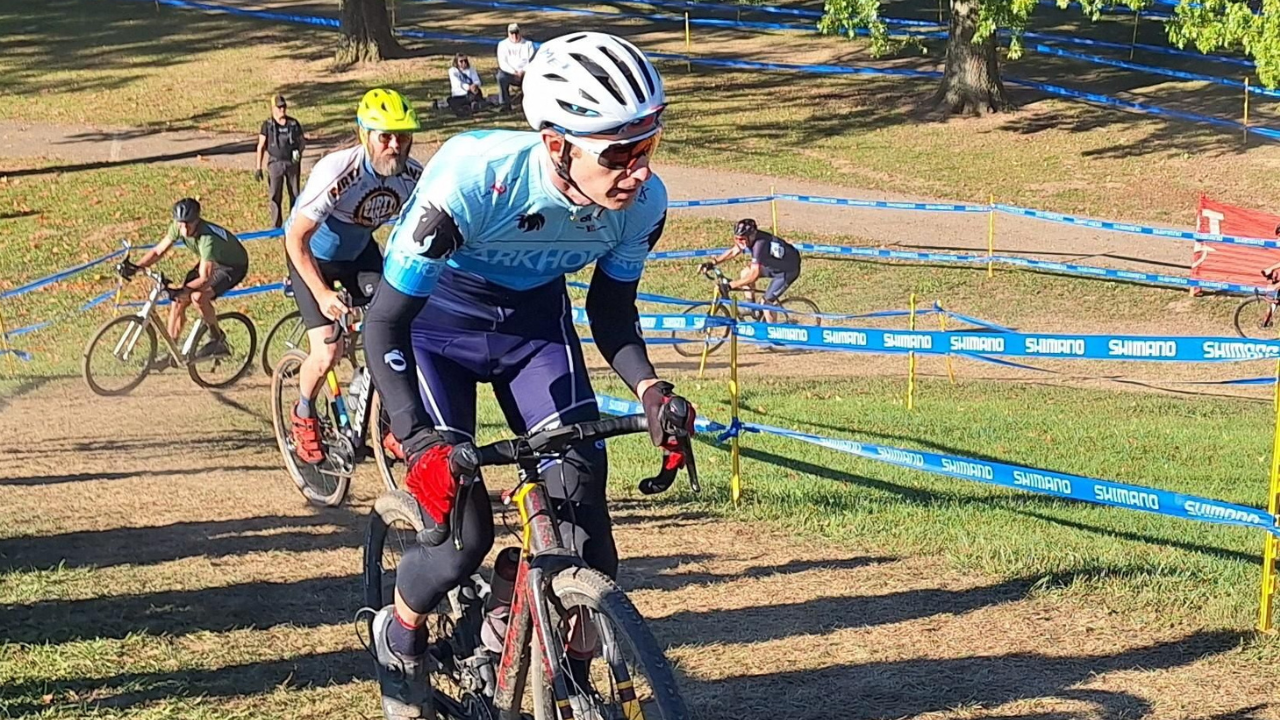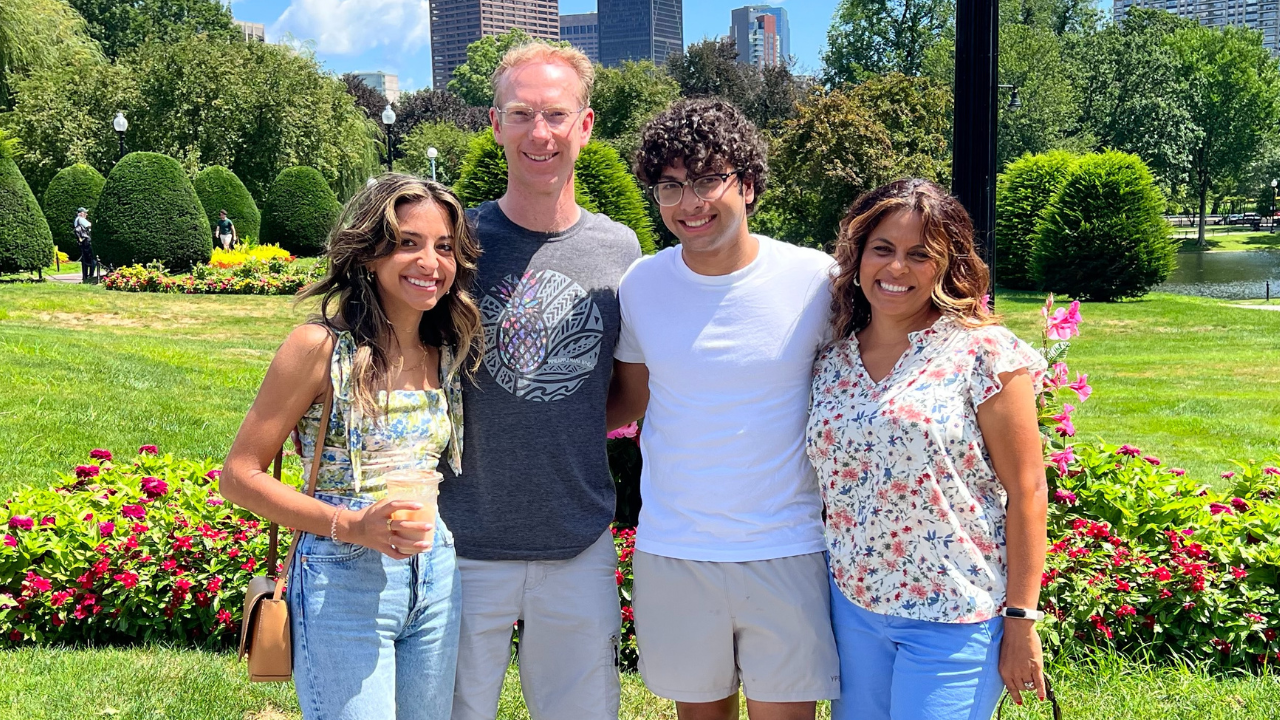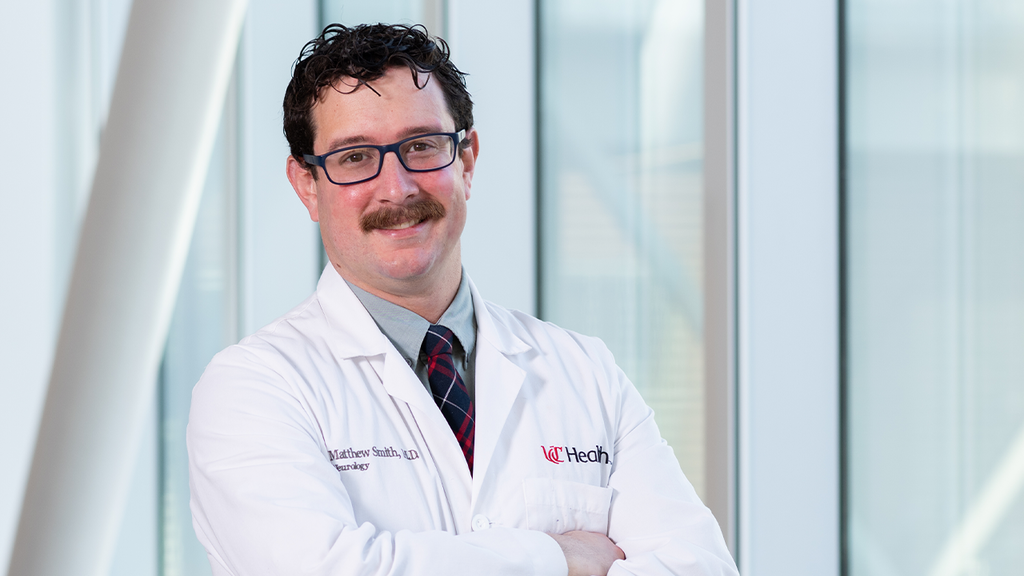An avid, award-winning cyclist and father of two, Mike Goertemoeller never expected a routine ride to take a life-changing turn. What began as a serious accident turned out to be the beginning of a race for his life—one that would test his strength, perseverance, and spirit.
- A devastating bicycle crash brought Mike to UC Medical Center, where he received treatment for a broken clavicle, along with fractures to his vertebrae and skull.
- While in the neurosciences intensive care unit, doctors discovered an abnormality in the blood vessels of his brain. Further testing revealed Mike had an arteriovenous fistula (AVF) — a potentially life-threatening condition. The expert care team at UC Gardner Neuroscience Institute created a personalized treatment plan tailored specifically to Mike’s unique needs.
- Determined to recover from both his accident and brain surgery, Mike fought his way back. In less than a year, he returned to cycling—and is even competing once again.
UC Gardner Neuroscience Institute is dedicated to providing boundless care for better outcomes. If you or a loved one needs care for a complex neurological condition, contact us at 866-941-8264.






